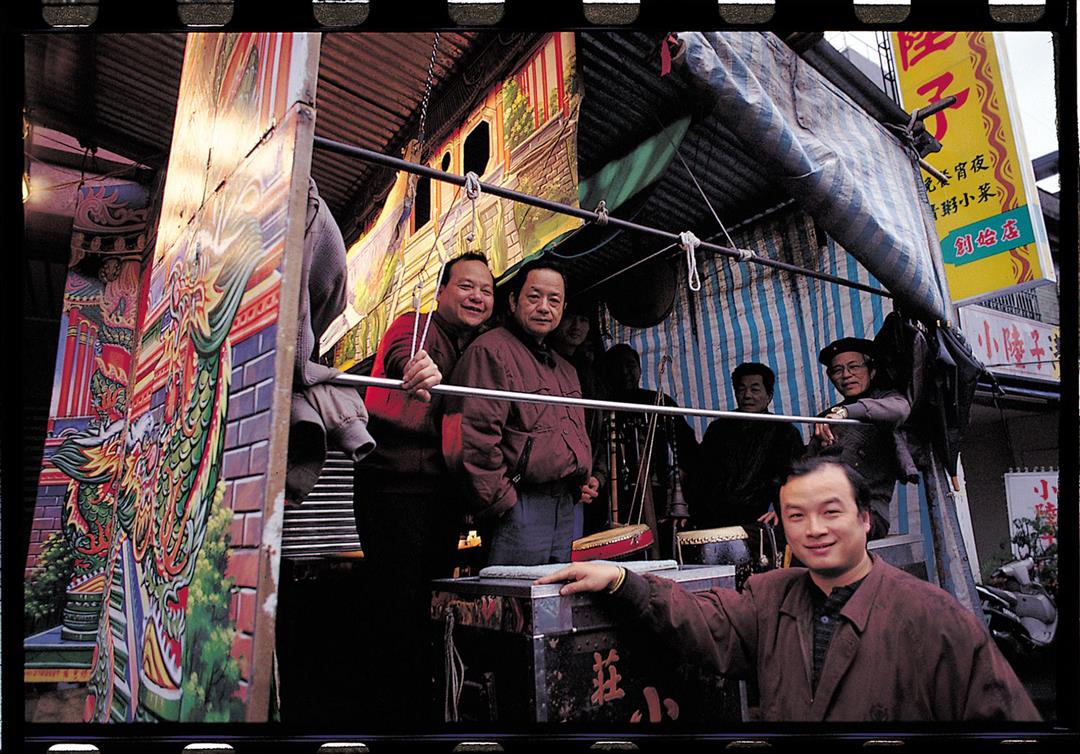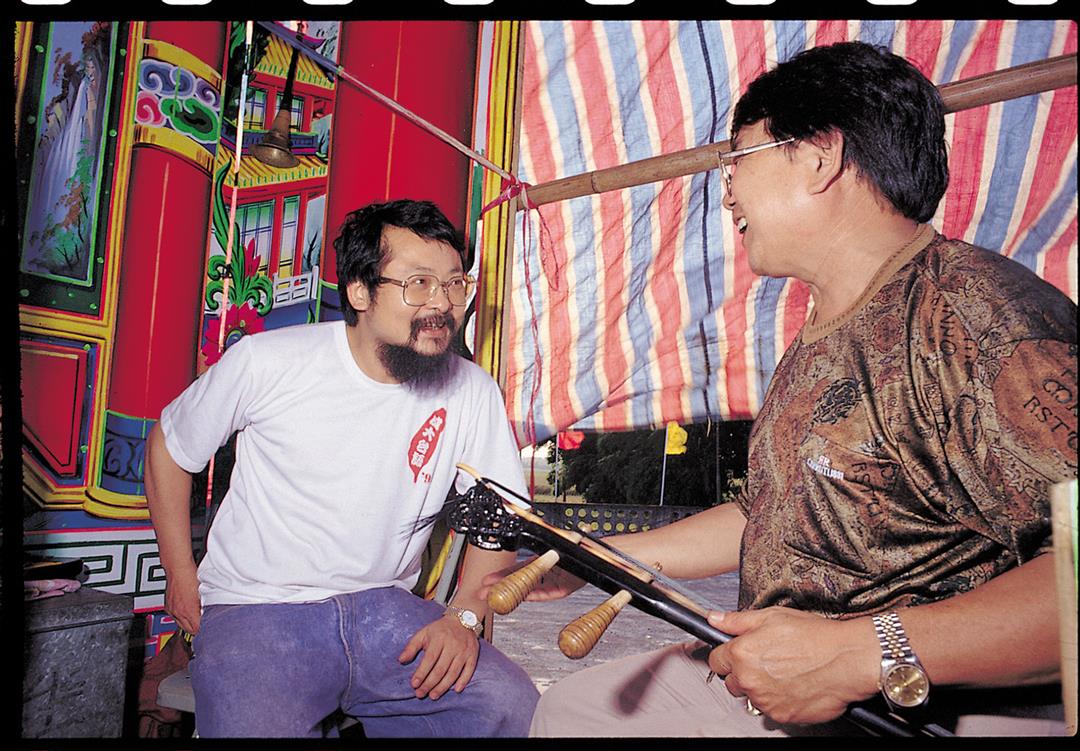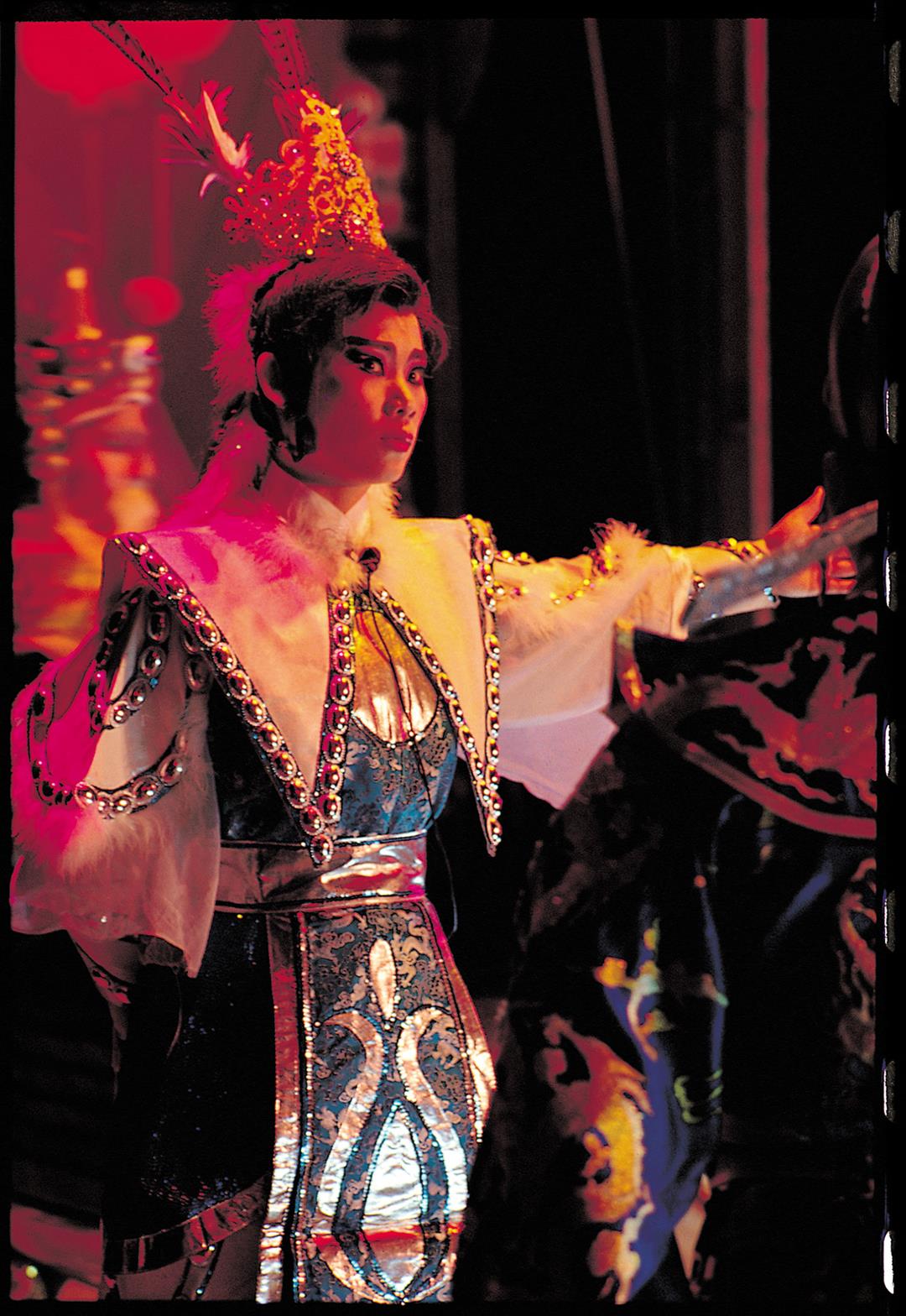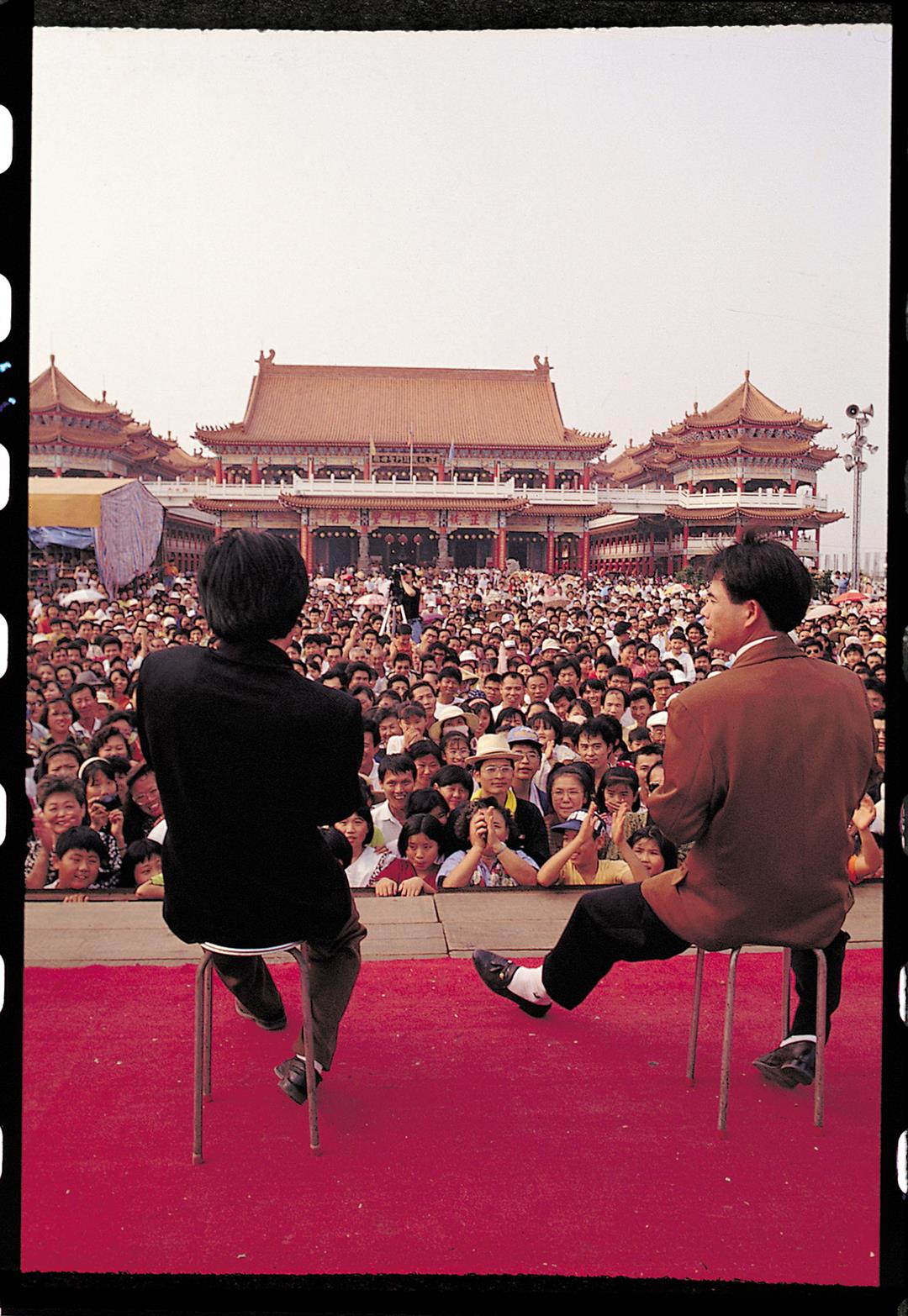More than just bringing Taiwanese performing arts onto the indoor stage, Ming Hua Yuan’s Chen Sheng-fu and Hsiao Hsi Yuan’s third-generation leader Hsu Kuo-liang also helped to launch a cultural movement rooted in the “local soil.”
“Downhome Taiwanese, march on!” In recent years, the slogan has resonated widely, but the sentiment is several decades old. Along with the social reforms and political liberalization of the 1990s, creative efforts in the Taiwanese language began to depart from the formulaic love stories or tales of woe that prevailed in the 1940s and 1950s. The new creativity was a breath of fresh air.
Young singer-songwriters Joy Topper Jr. and Lim Giong, producer Will Lin and diva Christine Hsu together founded the Blacklist Workshop. Along with master folk singer Chen Ming-chang, they were closely linked to Taiwanese social movements and released many classic Taiwanese-language songs.
Lim Giong’s “Marching Forward,” which describes the lives of southern Taiwanese who had gone north to work, still resonates across generations, serving as an anthem of solidarity in countless northern street protests. In Afternoon Theater, Chen blended the traditional folk and nakashi genres, half speaking and half singing, pouring emotion into his Taiwanese lyrics.
As you flip through Sinorama, you discover that history isn’t happenstance. Two decades ago powerful Taiwanese voices were already making themselves heard.

Traditional Taiwanese performance arts have been gaining refinement as they move from temple plazas into performance halls. They have become a driving force of innovation in Taiwan’s arts community as a whole, strengthening connections to the island’s cultural heritage.

Traditional Taiwanese performance arts have been gaining refinement as they move from temple plazas into performance halls. They have become a driving force of innovation in Taiwan’s arts community as a whole, strengthening connections to the island’s cultural heritage.

Traditional Taiwanese performance arts have been gaining refinement as they move from temple plazas into performance halls. They have become a driving force of innovation in Taiwan’s arts community as a whole, strengthening connections to the island’s cultural heritage.

Traditional Taiwanese performance arts have been gaining refinement as they move from temple plazas into performance halls. They have become a driving force of innovation in Taiwan’s arts community as a whole, strengthening connections to the island’s cultural heritage.